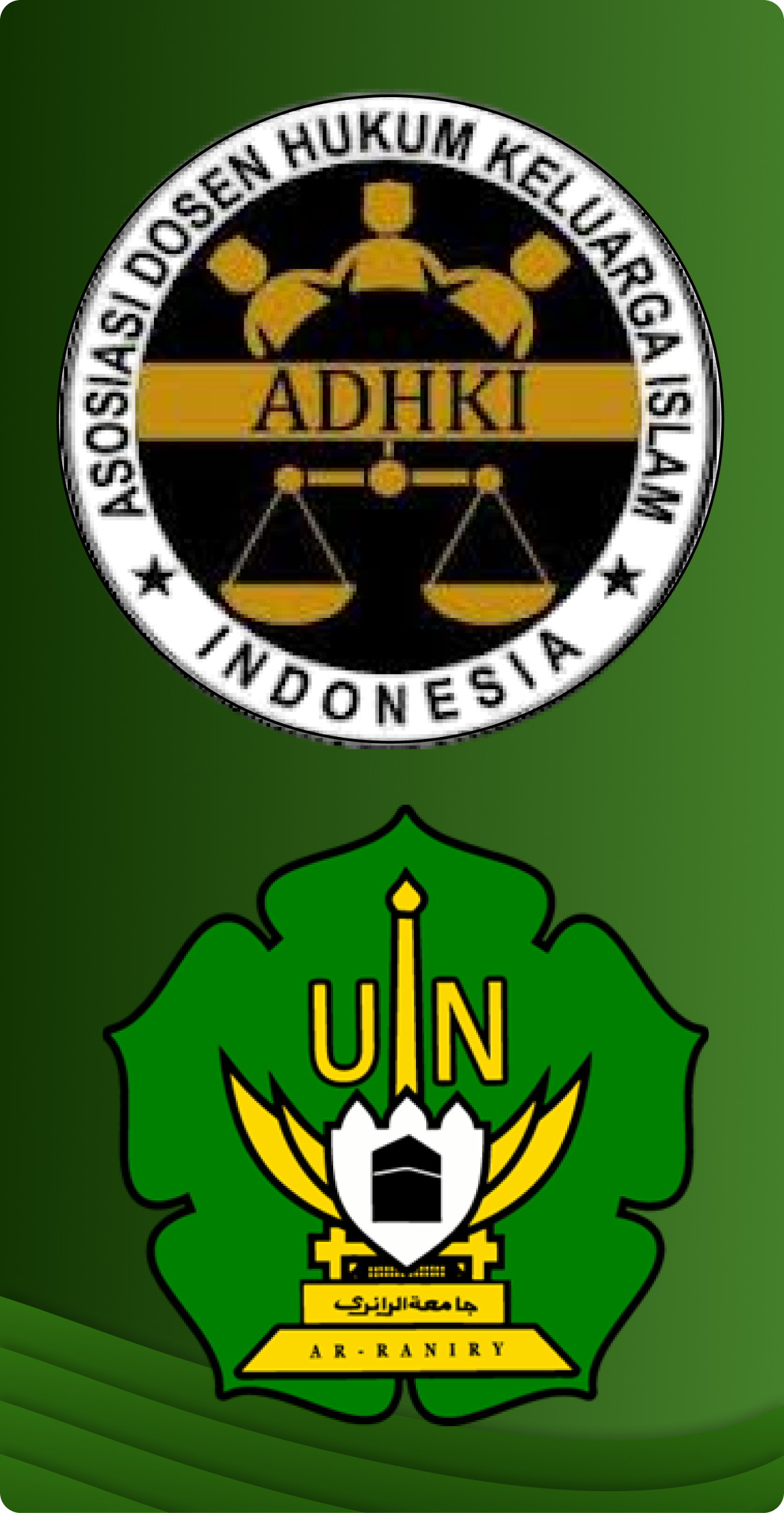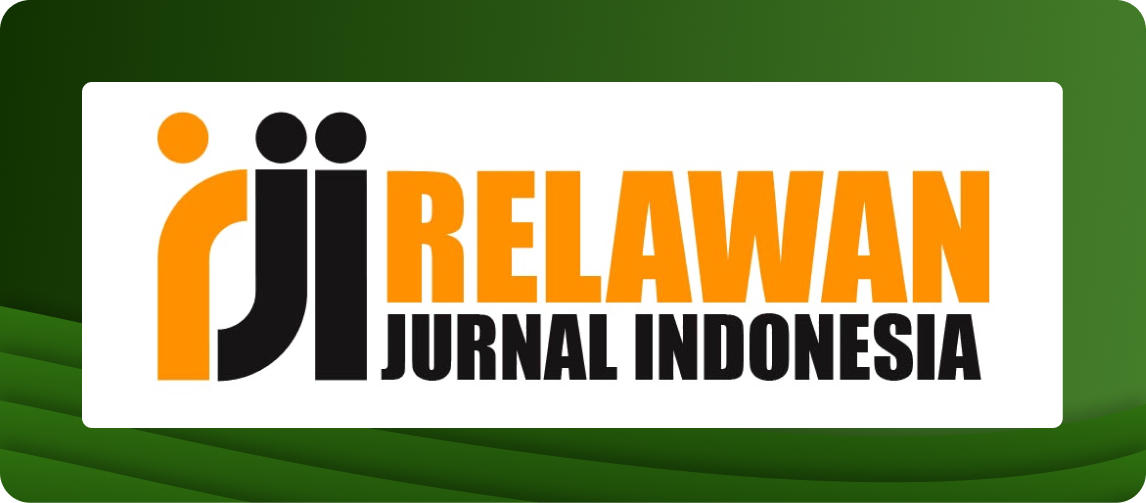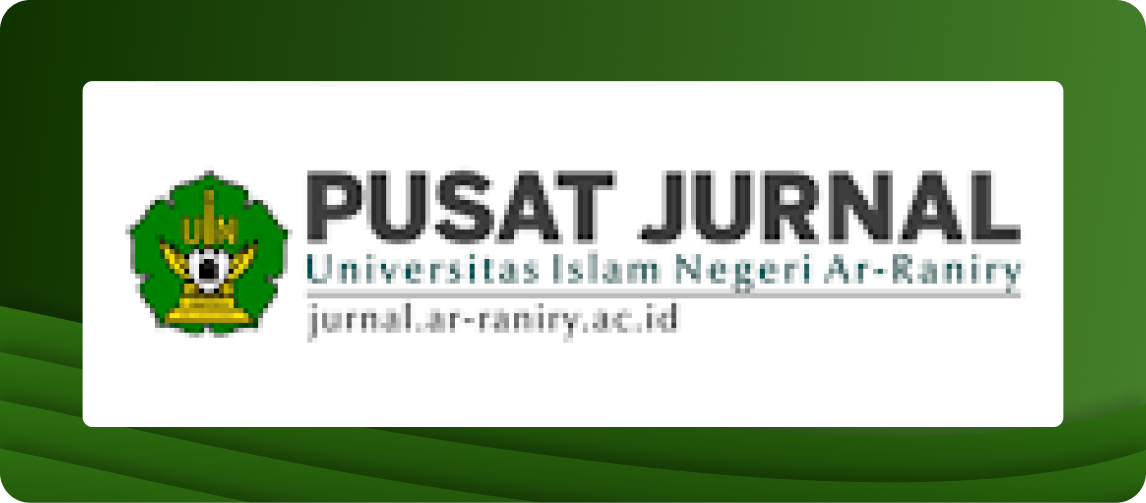The Paradigm of Water Justice in Water Resources Law and the Role of Family in the Sustainable Development Goals Framework
A Study in Malang Raya
DOI:
https://doi.org/10.22373/06zthp22Keywords:
Water justice, water resources law, privatization, family, SDGs, water conservation, environmental policy.Abstract
The paradigm of water justice in water resources law is crucial in realizing fair and sustainable access for the community. This study highlights the problems of inequality in water distribution due to privatization and the implementation of policies that have not fully supported vulnerable communities. This study focuses on the regulation of water resources law in Indonesia, especially Law No. 17 of 2019, and the contribution of families in supporting the principle of water justice within the framework of the Sustainable Development Goals (SDGs). The main questions answered in this study include how current regulations regulate water distribution and access, how effective they are in implementation in Malang Raya, and the role of families in supporting sustainable water management. This type of research is empirical juridical with a sociological juridical approach and an empirical legal approach. Data were obtained through legal document studies, interviews with stakeholders, and direct observation of water consumption and management patterns in local communities. The results show that although national regulations have established water as a public right, its implementation still faces challenges, including an imbalance of access between urban and rural areas, industrial dominance in the use of water resources, and weak community participation in policy processes. The study also found that families have a strategic role to play in educating household members about water conservation and driving more inclusive local policies. This study recommends increasing the role of families in water management policies through community-based environmental education and awareness programs, as well as strengthening regulations to ensure a more equitable distribution of water. Thus, the implementation of the principle of water justice in water resources law can be more effective in supporting the achievement of SDG 6.
References
Journal and Books
Annamma, Subini Ancy, and Tamara Handy. “Sharpening Justice Through DisCrit: A Contrapuntal Analysis of Education.” Educational Researcher 50, no. 1 (2021).
Ao, Chon-Kit. “Privatization of Water Supply and Human Capital Accumulation.” SSRN Scholarly Paper. Rochester, NY: Social Science Research Network, (2021).
Babuna, Pius, Xiaohua Yang, Roberto Xavier Supe Tulcan, Bian Dehui, Mohammed Takase, Bismarck Yelfogle Guba, Chuanliang Han, Doris Abra Awudi, and Meishui Li. “Modeling Water Inequality and Water Security: The Role of Water Governance.” Journal of Environmental Management 326 (2023).
Baltruszewicz, Marta, Julia K Steinberger, Diana Ivanova, Lina I Brand-Correa, Jouni Paavola, and Anne Owen. “Household Final Energy Footprints in Nepal, Vietnam and Zambia: Composition, Inequality and Links to Well-Being.” Environmental Research Letters 16, no. 2 (2021).
Besser, Houda, Latifa Dhaouadi, Riheb Hadji, Younes Hamed, and Hatem Jemmali. “Ecologic and Economic Perspectives for Sustainable Irrigated Agriculture under Arid Climate Conditions: An Analysis Based on Environmental Indicators for Southern Tunisia.” Journal of African Earth Sciences 177 (2021).
Bilalova, Shahana, Jens Newig, Laurent-Charles Tremblay-Lévesque, Julienne Roux, Colin Herron, and Stuart Crane. “Pathways to Water Sustainability? A Global Study Assessing the Benefits of Integrated Water Resources Management.” Journal of Environmental Management 343 (2023).
Calderón-Villarreal, Alhelí, Urinda Alamo-Hernández, Brendan Terry, and Nelly Salgado-de-Snyder. “Popular Education to Improve Water Quality and Hygiene in a Mexican Indigenous Community.” Global Health Promotion 30, no. 3 (2023).
Casazza, Marco, Jingyan Xue, Shupan Du, Gengyuan Liu, and Sergio Ulgiati. “Simulations of Scenarios for Urban Household Water and Energy Consumption.” PLOS ONE 16, no. 4 (2021).
Chambers, Dianne, and C. and Forlin. “An Historical Ethnography of the Enactment of Rawl’s Theory of Justice as Applied to the Education of Learners with Disability in Western Australia.” International Journal of Inclusive Education 28, no. 5 (2024).
Crespo, Daniel, Jose Albiac, Ariel Dinar, Encarna Esteban, and Taher Kahil. “Integrating Ecosystem Benefits for Sustainable Water Allocation in Hydroeconomic Modeling.” PLOS ONE 17, no. 5 (2022).
Di Fonzo, Davide, Alessandra Fabri, and Roberto Pasetto. “Distributive Justice in Environmental Health Hazards from Industrial Contamination: A Systematic Review of National and near-National Assessments of Social Inequalities.” Social Science & Medicine 297 (2022).
Ding, Yun, Shiqi Zhang, Ruifan Xu, Yuan Gao, Hao Ding, Pengfei Sun, and Wenxin Liu. “The Coupling Coordination Measurement, Spatio-Temporal Differentiation and Driving Mechanism of Urban and Rural Water Poverty in Northwest China.” International Journal of Environmental Research and Public Health 20, no. 3 (2023).
Dominguez-Rendón, Edith, Mariana Villada-Canela, and Dalia Marcela Muñoz-Pizza. “‘Community Strengthening through Citizen Monitoring of Water Quality: A Systematic Review.’” PLOS ONE 19, no. 7 (2024): e0305723.
Fanaian, Safa, and Farnoosh Fanaian. “A Tug of War between Centralization and Decentralization: The Co-Evolution of Urban Governance and Water Risks in Guwahati, India.” Environmental Research Communications 5, no. 6 (2023).
filantra. “PENGUATAN KETAHANAN KELUARGA DAN PENCAPAIAN SDGS.” Filantra (blog), May 13, 2024. https://www.filantra.org/id/penguatan-ketahanan-keluarga-dan-pencapaian-sdgs/.
García-Valiñas, Marian, Fernando Arbués, and Roberto Balado-Naves. “Assessing Environmental Profiles: An Analysis of Water Consumption and Waste Recycling Habits.” Journal of Environmental Management 348 (2023).
Grillos, Tara, Alan Zarychta, and Jami Nelson Nuñez. “Water Scarcity & Procedural Justice in Honduras: Community-Based Management Meets Market-Based Policy.” World Development 142 (2021).
Gu, Yuanhong, Shaoqing Chen, and Mo Li. “Uncovering the Dynamics of Consumption-Based Household Water Footprint in Response to Pandemic: The Hysteresis Effect of Disruption.” Earth’s Future 11, no. 5 (2023).
Hall, Nina L., Amanda Lee, Wendy E. Hoy, and Sandra Creamer. “Five Enablers to Deliver Safe Water and Effective Sewage Treatment to Remote Indigenous Communities in Australia.” Rural and Remote Health 21, no. 3 (2021). https://doi.org/10.22605/RRH6565.
Herawati, Henny, Kartini, Aji Ali Akbar, and Tatang Abdurrahman. “Strategy for Realizing Regional Rural Water Security on Tropical Peatland.” Water 13, no. 18 (2021).
Hove, Jennifer, D’Ambruoso ,Lucia, Kahn ,Kathleen, Witter ,Sophie, van der Merwe ,Maria, Mabetha ,Denny, Tembo ,Kingsley, and Rhian and Twine. “Lessons from Community Participation in Primary Health Care and Water Resource Governance in South Africa: A Narrative Review.” Global Health Action 15, no. 1 (2022).
Jódar, J., J. Urrutia, C. Herrera, E. Custodio, S. Martos-Rosillo, and L. J. Lambán. “The Catastrophic Effects of Groundwater Intensive Exploitation and Megadrought on Aquifers in Central Chile: Global Change Impact Projections in Water Resources Based on Groundwater Balance Modeling.” Science of The Total Environment 914 (2024).
Johnson, Daniel, and Sylvie Geisendorf. “Valuing Ecosystem Services of Sustainable Urban Drainage Systems: A Discrete Choice Experiment to Elicit Preferences and Willingness to Pay.” Journal of Environmental Management 307 (2022).
Karasaki, Seigi, Jessica J Goddard, Alasdair Cohen, and Isha Ray. “Environmental Justice and Drinking Water: A Critical Review of Primary Data Studies.” WIREs Water 10, no. 5 (2023).
Kaushik, Pankaj R., Christopher E. Ndehedehe, Ikechukwu Kalu, Ryan M. Burrows, Mark R. Noll, and Mark J. Kennard. “Identifying Potential Hotspots of Groundwater-Climate Interaction in the Great Artesian Basin, Australia.” Ecological Informatics 78 (2023).
Keleb, Awoke, Chala Daba, Abel Endawkie, Lakew Asmare, Fekade Demeke Bayou, Eyob Tilahun Abeje, Aznamariam Ayres, et al. “Rural-Urban Disparities in Basic Sanitation Access among Households: A Multivariable Decomposition Analysis of Ethiopian Demographic and Health Survey 2019.” Frontiers in Public Health 12 (2024).
Koseoglu-Imer, Derya Y., Hasan Volkan Oral, Cristina Sousa Coutinho Calheiros, Pawel Krzeminski, Serkan Güçlü, Sofia Almeida Pereira, Joanna Surmacz-Górska, et al. “Current Challenges and Future Perspectives for the Full Circular Economy of Water in European Countries.” Journal of Environmental Management 345 (2023).
Kotzé, Louis J, and Caiphas B Soyapi. “African Courts and Principles of International Environmental Law: A Kenyan and South African Case Study.” Journal of Environmental Law 33, no. 2 (2021).
Lau, Jacqueline D., Georgina G. Gurney, and Joshua Cinner. “Environmental Justice in Coastal Systems: Perspectives from Communities Confronting Change.” Global Environmental Change 66 (2021).
Luo, Juhua, Zhe Sun, Lirong Lu, Zhuyang Xiong, Lipeng Cui, and Zhigang Mao. “Rapid Expansion of Coastal Aquaculture Ponds in Southeast Asia: Patterns, Drivers and Impacts.” Journal of Environmental Management 315 (2022).
Mamede, Henrique, João Cortez Neves, José Martins, Ramiro Gonçalves, and Frederico Branco. “A Prototype for an Intelligent Water Management System for Household Use.” Sensors 23, no. 9 (2023).
Marx, Christian, Doerthe Tetzlaff, Reinhard Hinkelmann, and Chris Soulsby. “Disentangling the Effects of 66 Years of Water Management and Hydroclimatic Change on the Urban Hydrology and Water Quality of the Panke Catchment, Berlin, Germany.” SSRN Scholarly Paper. Rochester, NY: Social Science Research Network, (2023).
Mazzoni, Filippo, Stefano Alvisi, Mirjam Blokker, Steven G. Buchberger, Andrea Castelletti, Andrea Cominola, Marie-Philine Gross, et al. “Investigating the Characteristics of Residential End Uses of Water: A Worldwide Review.” Water Research 230 (2023).
Mishra, Binaya Kumar, Pankaj Kumar, Chitresh Saraswat, Shamik Chakraborty, and Arjun Gautam. “Water Security in a Changing Environment: Concept, Challenges and Solutions.” Water 13, no. 4 (2021).
Murgatroyd, A., and J. W. Hall. “Regulation of Freshwater Use to Restore Ecosystems Resilience.” Climate Risk Management 32 (2021): 100303. https://doi.org/10.1016/j.crm.2021.100303.
Mustafa, Sohaib, Khalid Jamil, Lifu Zhang, and Mengisti Berihu Girmay. “Does Public Awareness Matter to Achieve the UN’s Sustainable Development Goal 6: Clean Water for Everyone?” Journal of Environmental and Public Health 2022, no. 1 (2022).
Ndehedehe, Christopher E., Oluwafemi E. Adeyeri, Alex O. Onojeghuo, Vagner G. Ferreira, Ikechukwu Kalu, and Onuwa Okwuashi. “Understanding Global Groundwater-Climate Interactions.” Science of The Total Environment 904 (2023).
Nelson, Sarah, Dorothy Drabarek, Aaron Jenkins, Joel Negin, and Seye Abimbola. “How Community Participation in Water and Sanitation Interventions Impacts Human Health, WASH Infrastructure and Service Longevity in Low-Income and Middle-Income Countries: A Realist Review,” December 1, 2021.
Nounkeu, Carole Debora, and Jigna Morarji and Dharod. “Water Fetching Burden: A Qualitative Study to Examine How It Differs by Gender among Rural Households in the West Region of Cameroon.” Health Care for Women International 43, no. 9 (2022).
Nygren, Anja. “Water and Power, Water’s Power: State-Making and Socionature Shaping Volatile Rivers and Riverine People in Mexico.” World Development 146 (2021): 105615.
Palermo, Stefania Anna, Mario Maiolo, Anna Chiara Brusco, Michele Turco, Behrouz Pirouz, Emilio Greco, Giandomenico Spezzano, and Patrizia Piro. “Smart Technologies for Water Resource Management: An Overview.” Sensors 22, no. 16 (2022).
Peña-Ramos, José Antonio, Philipp Bagus, and Daria Fursova. “Water Conflicts in Central Asia: Some Recommendations on the Non-Conflictual Use of Water.” Sustainability 13, no. 6 (2021).
Qiu, Jiali, Zhenyao Shen, Guoyong Leng, and Guoyuan Wei. “Synergistic Effect of Drought and Rainfall Events of Different Patterns on Watershed Systems.” Scientific Reports 11, no. 1 (2021).
Raven, Rob, David Reynolds, Ruth Lane, Jo Lindsay, Annica Kronsell, and Dharma Arunachalam. “Households in Sustainability Transitions: A Systematic Review and New Research Avenues.” Environmental Innovation and Societal Transitions 40 (2021).
Shahangian, S A, M Tabesh, M Yazdanpanah, and ... “Promoting the Adoption of Residential Water Conservation Behaviors as a Preventive Policy to Sustainable Urban Water Management.” 2022.
Shahbaz, Pomi, Shamsheer ul Haq, Azhar Abbas, Abdus Samie, Ismet Boz, Salim Bagadeem, Ziyue Yu, and Zhihui Li. “Food, Energy, and Water Nexus at Household Level: Do Sustainable Household Consumption Practices Promote Cleaner Environment?” International Journal of Environmental Research and Public Health 19, no. 19 (2022).
Song, Song, Lehui Fang, Jinxin Yang, Rui Zhou, Gale Bai, and Yuqi Qiu. “The Spatial-Temporal Matching Characteristics of Water Resources and Socio-Economic Development Factors: A Case Study of Guangdong Province.” Water 16, no. 2 (2024).
Starzyk, Katherine B., Katelin H. S. Neufeld, Danielle Gaucher, Jacquie D. Vorauer, Aleah S. M. Fontaine, Matthew S. Quesnel, and Alexa R. Yakubovich. “‘Is Water a Human Right?’: Priming Water as a Human Right Increases Support for Government Action.” The International Indigenous Policy Journal 12, no. 3 (2021).
Strzelecka, Marianna, Marcin Rechciński, Joanna Tusznio, Arash Akhshik, and Małgorzata Grodzińska-Jurczak. “Environmental Justice in Natura 2000 Conservation Conflicts: The Case for Resident Empowerment.” Land Use Policy 107 (2021).
Sulistyaningsih, Tri, Achmad Nurmandi, Salahudin Salahudin, Ali Roziqin, Muhammad Kamil, Iradhad T. Sihidi, Ach Apriyanto Romadhan, and Mohammad Jafar Loilatu. “Public Policy Analysis on Watershed Governance in Indonesia.” Sustainability 13, no. 12 (2021).
Timilsina, Raja R., Koji Kotani, Yoshinori Nakagawa, and Tatsuyoshi Saijo. “Intragenerational Deliberation and Intergenerational Sustainability Dilemma.” European Journal of Political Economy 73 (2022).
Tran, Hung Van, Anh Viet Tran, Ngoc Bui Hoang, and Tram Nguyen Huynh Mai. “Asymmetric Effects of Foreign Direct Investment and Globalization on Ecological Footprint in Indonesia.” PLOS ONE 19, no. 1 (2024).
UNICEF. “SDG Goal 6: Clean Water and Sanitation.” UNICEF DATA. Accessed March 20, 2025. https://data.unicef.org/sdgs/goal-6-clean-water-sanitation/.
Utami, Rosetyati R., Geerling ,Gertjan W., Salami ,Indah R.S., Notodarmojo ,Suprihanto, and Ad M. J. and Ragas. “Mapping Domestic Water Use to Quantify Water-Demand and Water-Related Contaminant Exposure in a Peri-Urban Community, Indonesia.” International Journal of Environmental Health Research 34, no. 1 (2024).
Ward, Frank A. “Integrating Water Science, Economics, and Policy for Future Climate Adaptation.” Journal of Environmental Management 325 (2023).
Whaley, Luke, Frances Cleaver, and Evance Mwathunga. “Flesh and Bones: Working with the Grain to Improve Community Management of Water.” World Development 138 (2021).
Yalew, Seleshi, Pooja Prasad, Marloes Mul, and Pieter van der Zaag. “Integrating Equity and Justice Principles in Water Resources Modeling and Management.” Environmental Research Letters 19, no. 11 (2024).
Yuen, Kai Wan, Edward Park, Melda Hazrina, Muh Taufik, Putu Santikayasa, Edgardo Latrubesse, and Janice Ser Huay Lee. “A Comprehensive Database of Indonesian Dams and Its Spatial Distribution.” Remote Sensing 15, no. 4 (2023).
Downloads
Published
Versions
- 2025-06-30 (2)
- 2025-06-30 (1)
Issue
Section
License
Copyright (c) 2025 Jundiani Jundiani, Moh Fadli, Indah Dwi Qurbani, Rika Kurniaty, Erfaniah Zuhriah

This work is licensed under a Creative Commons Attribution-ShareAlike 4.0 International License.
Authors who publish in El-Usrah: Jurnal Hukum Keluarga agree to the following terms:
Authors retain copyright and grant the journal right of first publication with the work simultaneously licensed Attribution-ShareAlike 4.0 International (CC BY-SA 4.0) that allows others to share the work with an acknowledgment of the work's authorship and initial publication in this journal.
Authors are able to enter into separate, additional contractual arrangements for the non-exclusive distribution of the journal's published version of the work (e.g., post it to an institutional repository or publish it in a book), with an acknowledgment of its initial publication in this journal.
Authors are permitted and encouraged to post their work online (e.g., in institutional repositories or on their website) prior to and during the submission process, as it can lead to productive exchanges, as well as earlier and greater citation of published work. (See The Effect of Open Acces)

















